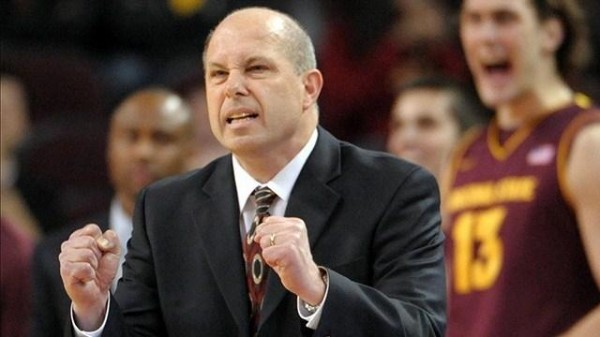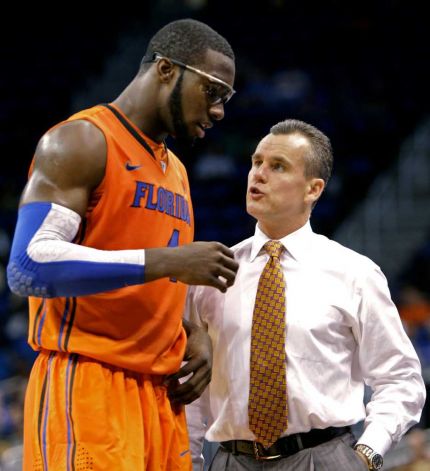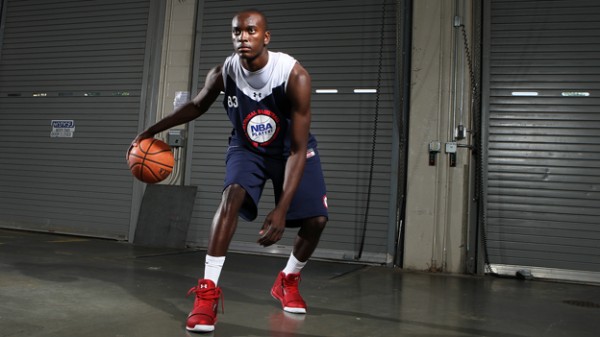Posted by Chris Johnson on October 29th, 2012
Chris Johnson is an RTC Columnist. He can be reached @ChrisDJohnsonn.
It is not hard to predict the nation’s top freshmen in a given season. Typically, general recruiting rankings do a pretty decent job aiming at a consensus. They pinpoint the players offering the greatest upside and promise at the college level, with an eye toward NBA potential. And most of the time, they are right. We watched this phenomenon unfold last season in the grandest fashion, when the Kentucky Wildcats took in another batch of top recruits, coalesced into a cohesive unit, captivated the college hoops landscape with an unprecedented brand of togetherness and selflessness, and shattered old axioms about the importance of experience and veteran leadership in the NCAA Tournament, all en route to a national championship. To be clear: 2011-12 Kentucky’s freshmen were not what we call elite; they were special, precocious in so many ways, far ahead of expected developmental paths. Not every top 10 recruit is an Anthony Davis or Michael Kidd Gilchrist or Marquis Teague. Most of the time, the blue chippers – the recruiting crème de la crème, the five-stars, or whatever moniker works for you – are extremely capable players with high developmental curves, packaged with a specific trait (athleticism, floor vision, shot-blocking, you name it) that separates them from the rest of the pack. If you can land one of these players, your team, needless to say, is extremely fortunate. Sealing one of these guys means instant credibility and, if all goes according to plan, success.

So much of the Sun Devils’ season depends on Jahii Carson’s ability to produce right away (Photo credit: US Presswire).
There are times when these recruiting gems don’t pan out at the next level, when lower-ranked players outplay their more-touted classmates. This can happen for a number of reasons. Often times, it has to do with opportunity, the sheer need-based requirements certain programs afford to incoming freshmen. When teams lose a significant number of minutes of starters from the previous season, freshmen – whatever their star ranking – are often asked to step in and fill the void. These players are in better position to have big debut seasons than higher-ranked freshmen who get buried on the depth charts (or redshirt) of deep and experienced rosters. It’s why some prospects spurn established programs with winning track records to chase more playing time at a less-prominent hoops locale. They step on campus expecting to play right away. Coaches have long since used this carrot as a recruiting trick. My job is to pin down these players. By surveying each team’s positional needs, and the recruiting work they did to fill those needs, I’ve come up with a group of newcomers who figure to play important roles on their respective teams. Selections may coincide with the top-end of 2012’s recruiting rankings, but inclusion is based more on circumstance than bare talent and scouting merits.
Jahii Carson – Arizona State. Unless Arizona State shows significant improvement in 2012-13, just one year after posting a 10-21 record and 10th place finish in an abysmal Pac-12, coach Herb Sendek’s seventh season at the school could be his last. Preventing that fateful outcome will hinge largely on Carson’s ability to navigate the backcourt and facilitate the Sun Devils’ offense, whose 98.4 adjusted offensive efficiency rating ranked near the bottom of Pac-12 teams, according to kenpom.com. Carson, who was ruled an academic non-qualifier last season, will be handed the reins on offense. He spurned offers from the likes of UCLA, Arizona, Washington and Memphis to stay in his home state. Now Carson has the chance to prove he made the right decision.
Read the rest of this entry »
| 2012-13 Season Preview
| Tagged: d'vauntes smith-rivera, Devonta Pollard, Gary Harris, glenn robinson iii, jahii carson, kyle anderson, marcus smart, ronnie johnson, sam dekker, Semaj Christian, Winston Shepard
Share this story
















































